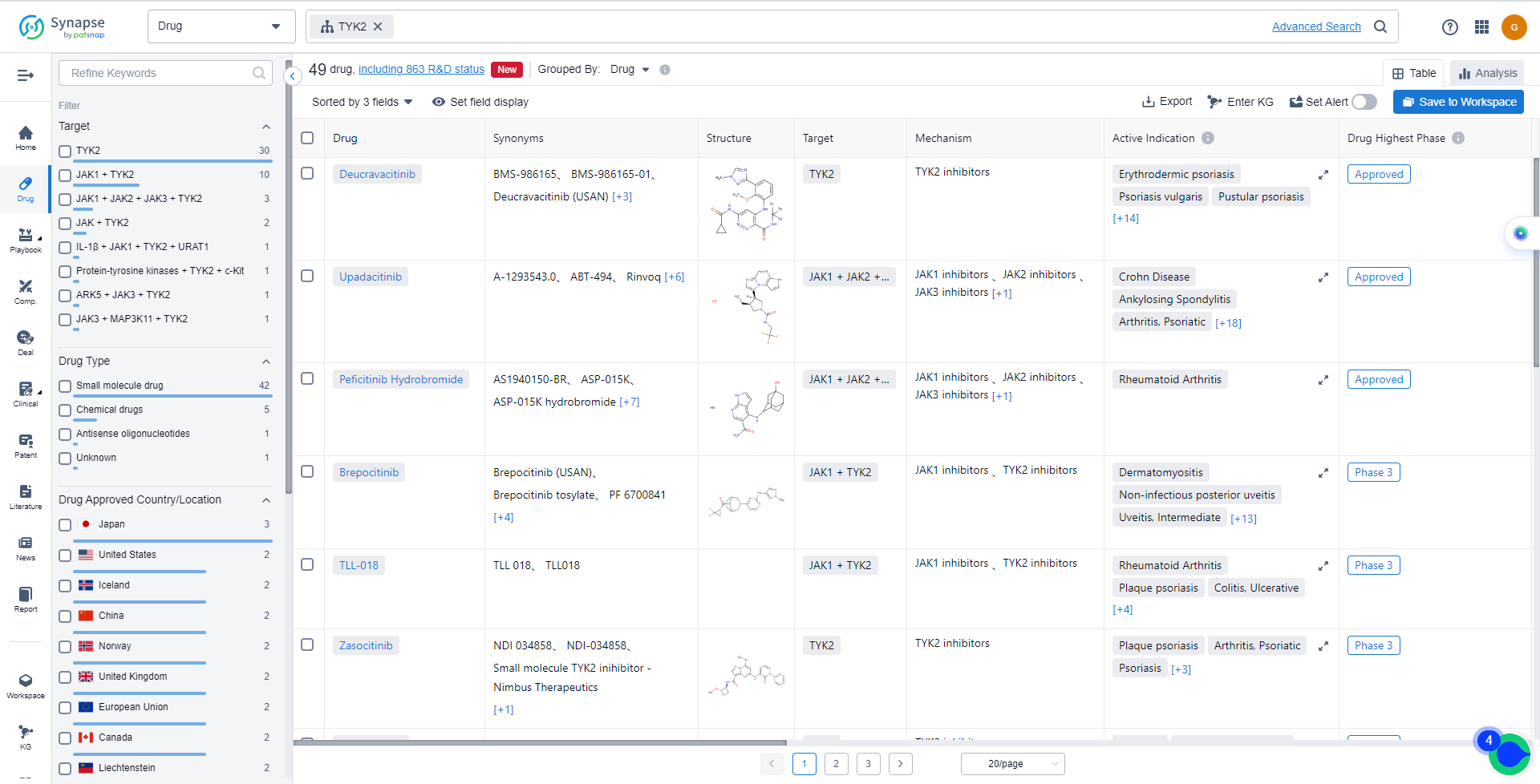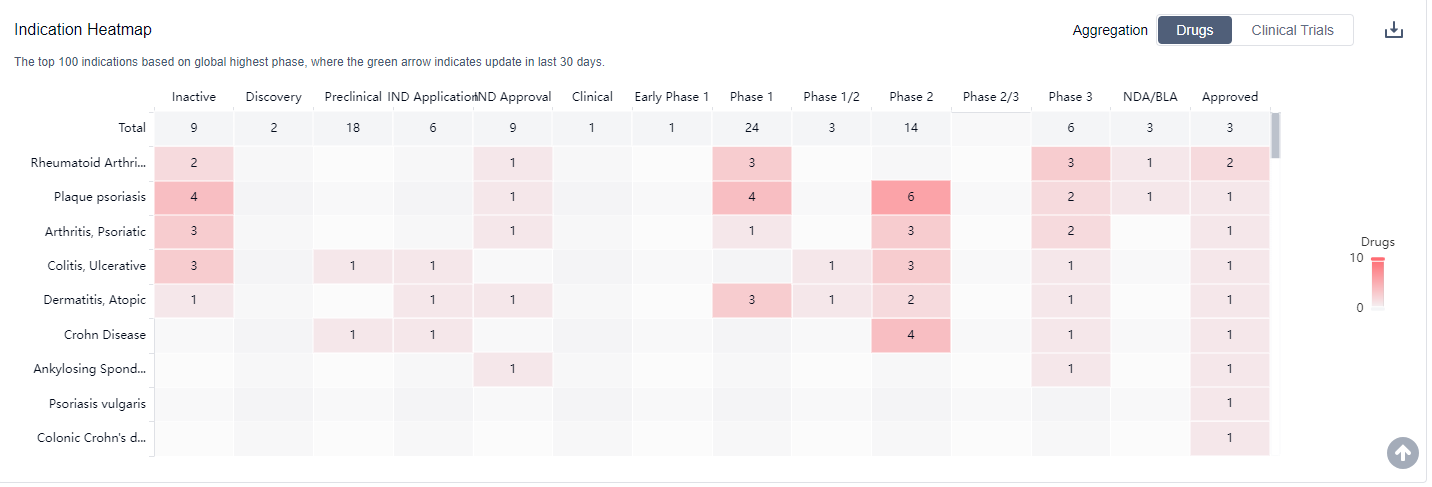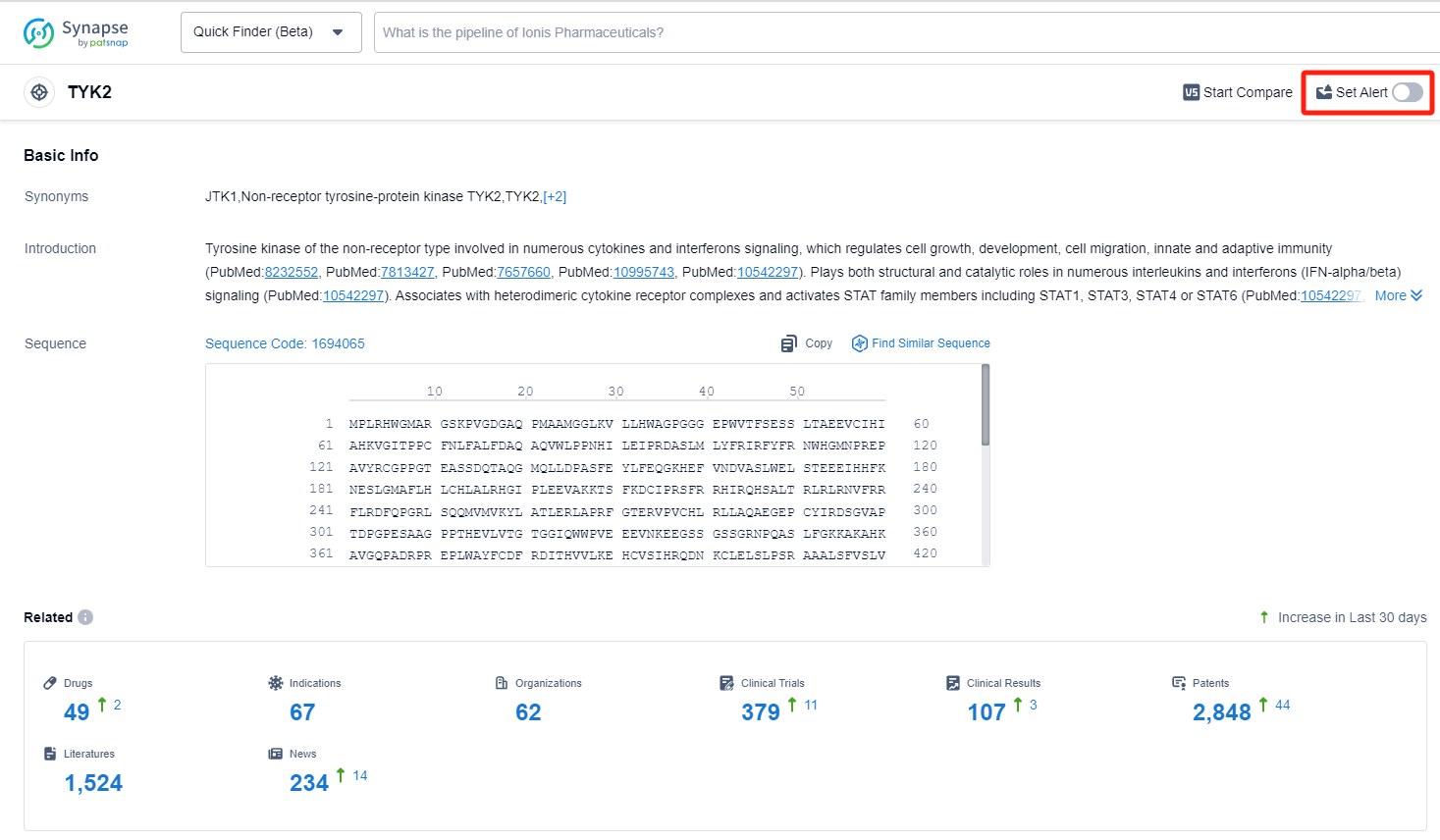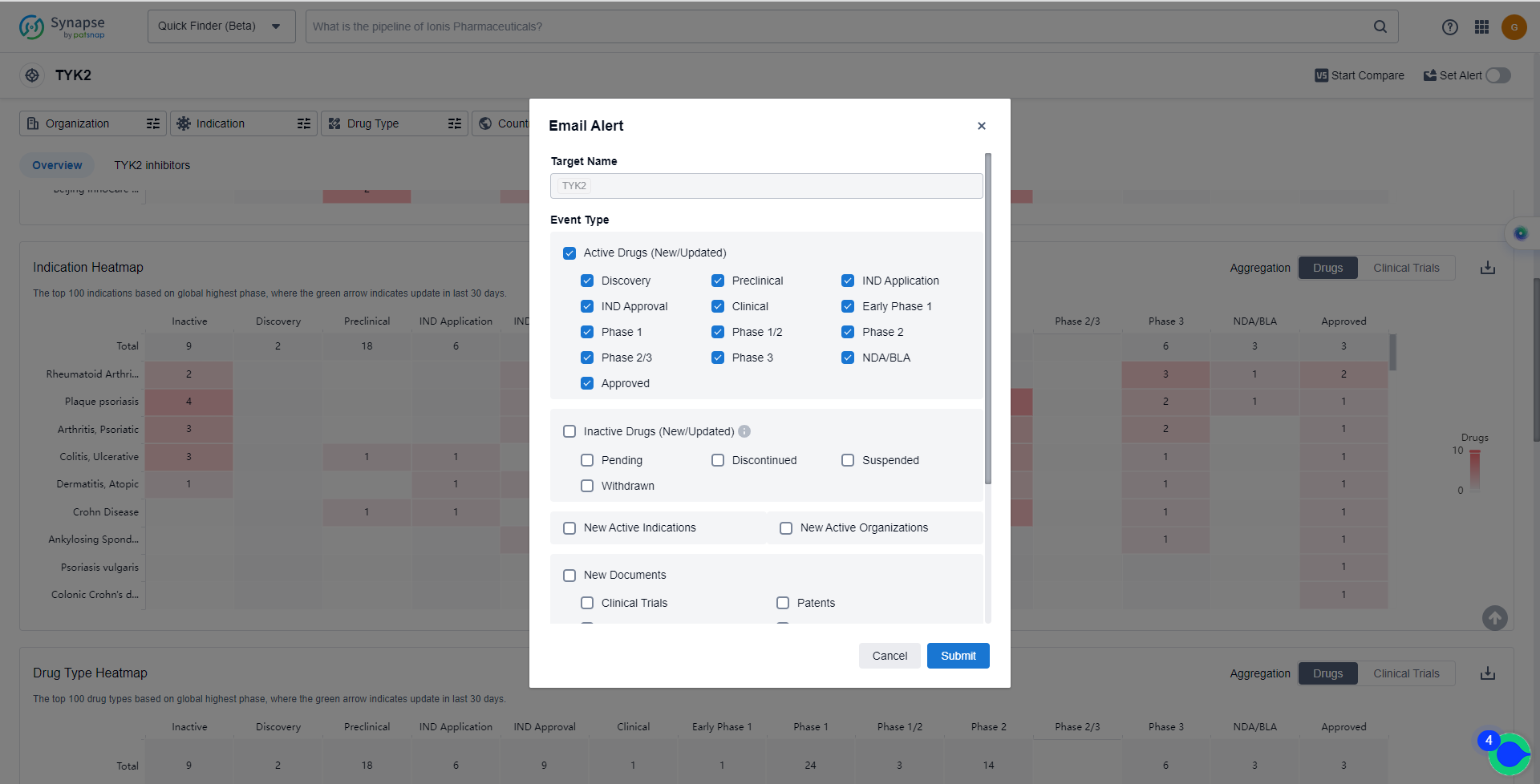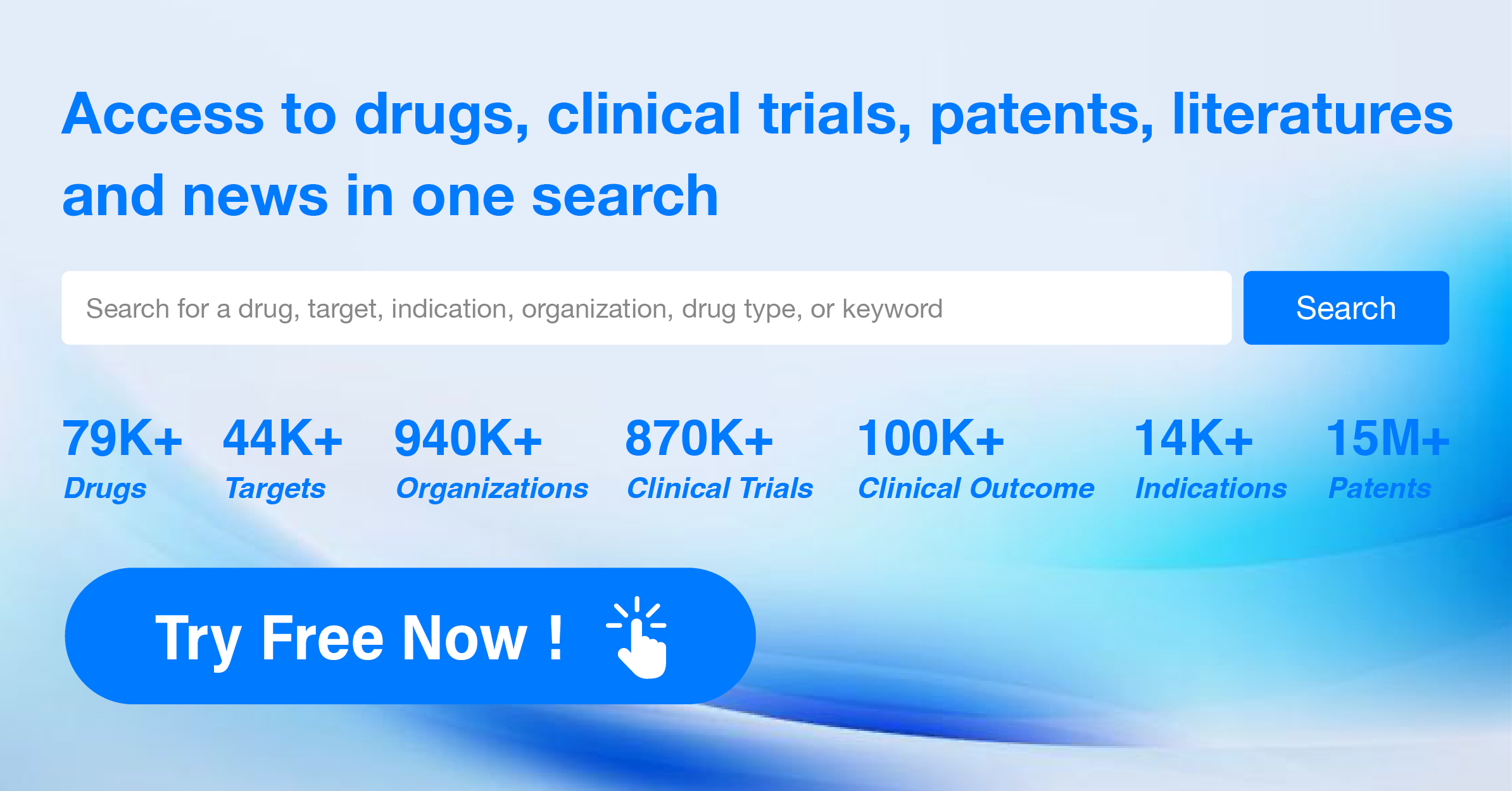What are TYK2 inhibitors and how do you quickly get the latest development progress?
TYK2, or Tyrosine Kinase 2, is an enzyme that plays a crucial role in the human body's immune system. It is a member of the Janus kinase (JAK) family and is involved in the signaling pathways of various cytokines, which are important for immune responses. TYK2 is primarily responsible for transmitting signals from cytokine receptors to the nucleus, regulating the production of immune cells and inflammatory mediators. Dysregulation of TYK2 has been linked to autoimmune diseases, such as rheumatoid arthritis and psoriasis, making it an attractive target for pharmaceutical interventions aimed at modulating immune responses.
The current competitive landscape of target TYK2 shows that Bristol Myers Squibb Co., AbbVie, Inc., Astellas Pharma, Inc., and Hangzhou Highlightll Pharmaceutical Co., Ltd are the leading companies with drugs in advanced stages of development. These companies have made significant progress in the R&D of drugs targeting TYK2.
Janus kinase (JAK) regulates the signal transduction of cytokines such as interleukin (IL) and interferon (IFN) through the JAK-signal transducer and activator of transcription (STAT) signaling pathway, playing an important role in immune regulation. JAK family inhibitors can be used to treat autoimmune diseases, but there are safety issues such as narrow therapeutic index and immune suppression. Tyrosine kinase 2 (TYK2) is a member of the JAK family and participates in the signal transduction of IL-23, IL-12, and type I IFN. Selective inhibition of TYK2 can minimize potential side effects, and is safer and more effective in clinical practice. The research on selective TYK2 inhibitors in autoimmune diseases is becoming more and more in-depth.
The approved indications for drugs targeting TYK2 include Rheumatoid Arthritis, Plaque psoriasis, Arthritis, Psoriatic, Colitis, Ulcerative, Dermatitis, Atopic, Crohn Disease, Ankylosing Spondylitis, Psoriasis vulgaris, Colonic Crohn's disease, active severe, Erythrodermic psoriasis, Axial Spondyloarthritis, Ulcerative colitis, active severe, Non-radiographic axial spondyloarthritis, Pustular psoriasis, Systemic Lupus Erythematosus, Alopecia Areata, Hidradenitis Suppurativa, Nonsegmental vitiligo, Juvenile Arthritis, and Dermatomyositis.
The drug types that are progressing most rapidly under the target TYK2 are Small molecule drugs, Chemical drugs, Antisense oligonucleotides, and Unknown. Small molecule drugs have the highest number of drugs in advanced phases.
China is making progress in the development of drugs targeting TYK2, with 2 drugs in the Approved phase. Other countries such as Japan, United States, European Union, and Canada are also actively developing drugs targeting TYK2.
Overall, the target TYK2 has a competitive landscape with multiple companies and drug types involved in its development. The future development of target TYK2 is promising, with ongoing research and development efforts in various countries.
How do they work?
TYK2 inhibitors are a type of drug that specifically target and inhibit the activity of the TYK2 enzyme. TYK2, also known as tyrosine kinase 2, is an enzyme that plays a crucial role in the signaling pathways of certain cytokines, which are small proteins involved in cell signaling and immune responses.
From a biomedical perspective, TYK2 inhibitors are of great interest in the field of biomedicine because they have the potential to modulate the immune system and treat various autoimmune and inflammatory diseases. By inhibiting TYK2, these inhibitors can disrupt the signaling pathways that contribute to the overactivation of the immune system, which is often observed in conditions such as rheumatoid arthritis, psoriasis, and inflammatory bowel disease.
The inhibition of TYK2 can help regulate the production of pro-inflammatory cytokines, thereby reducing inflammation and alleviating the symptoms associated with these diseases. Additionally, TYK2 inhibitors may also have potential in treating certain types of cancer, as TYK2 has been implicated in tumor growth and metastasis.
Overall, TYK2 inhibitors represent a promising class of drugs that hold potential for the treatment of various autoimmune, inflammatory, and potentially even oncological conditions. However, it is important to note that further research and clinical trials are necessary to fully understand their efficacy, safety, and potential side effects.
List of TYK2 Inhibitors
The currently marketed TYK2 inhibitors include:
- Deucravacitinib
- Upadacitinib
- Peficitinib Hydrobromide
- Brepocitinib
- TLL-018
- Zasocitinib
- BMS-986322
- ESK-001
- GLPG-3667
- ICP-332
For more information, please click on the image below.
What are TYK2 inhibitors used for?
TYK2 inhibitors are used in some autoimmune diseases, such as rheumatoid arthritis and psoriasis For more information, please click on the image below to log in and search.
How to obtain the latest development progress of TYK2 inhibitors?
In the Synapse database, you can keep abreast of the latest research and development advances of TYK2 inhibitors anywhere and anytime, daily or weekly, through the "Set Alert" function. Click on the image below to embark on a brand new journey of drug discovery!
